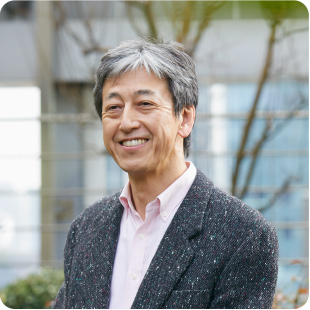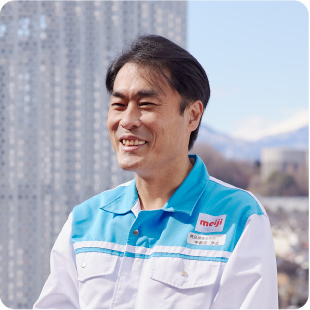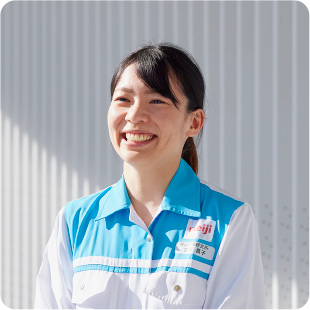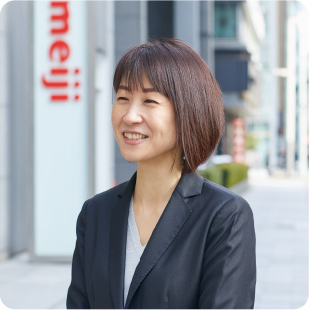
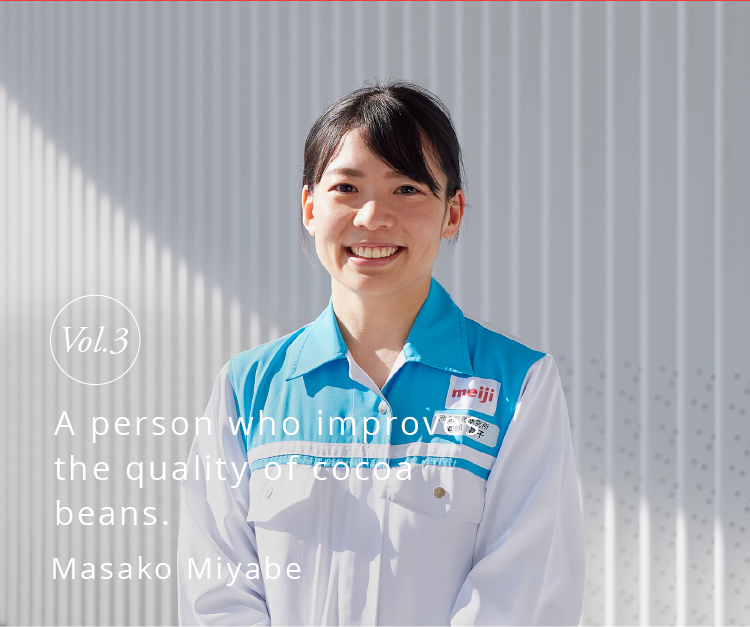
Meiji cocoa support for over 15 years (MCS). Through these activities and projects, we have built a framework to support cocoa farmers in the areas of production, and we have faced the challenges facing cocoa sector. Masako Miyabe, a young cocoa researcher, will take over MCS activities of his seniors. After nine years with the company, she spoke about the challenges of MCS and her thoughts on the future.
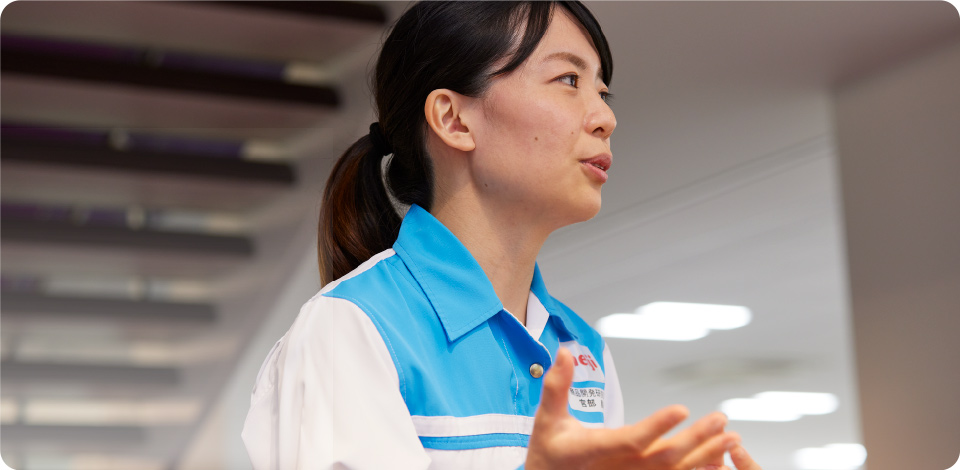
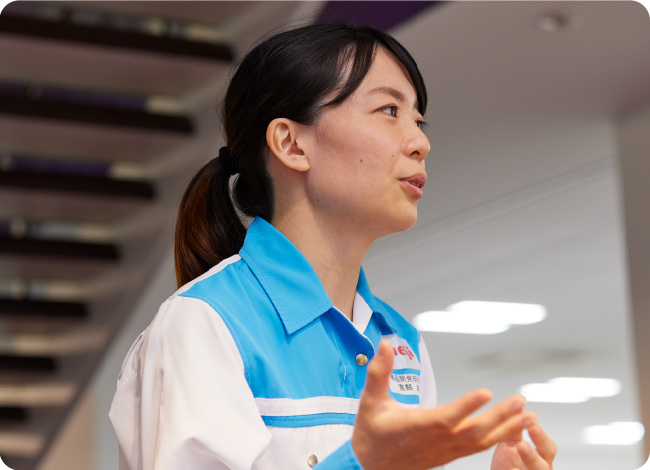
One thing I've learned from participating in MCS is not to impose your values.
What made me want to join Meiji was the information session I attended when I was looking for a job. It was impressive that the employees were very happy to explain their work. The story that they actually visited cocoa production area and instructed the local cocoa farmers on how to ferment was particularly impressive. I didn't know at that time that it had already started as a meiji cocoa support, but I wanted to go back to the other side of the globe and be involved in researching and developing cocoa.
My dream came true, and since I joined the company in 2013, I have been facing cocoa on every day in the department that studies the quality and functionality of cocoa used in products.
When I first joined in Meiji, I felt like a distant presence, saying, "It's amazing to support distant lands." When I came to participate and actually visited the site, I learned a lot that I couldn't get in Japan.
For example, the process of harvesting cocoa pods, fermenting cocoa, and drying, which are essential for chocolate production. This can't be seen in the process without going to the production area. I was deeply shocked and moved at the time when I was only experiencing making chocolate from the finished cocoa.
On the other hand, we often encountered the barrier of differences in culture and values. Even if we asked them to ferment cocoa in a way promoted by Meiji in order to produce high-quality products, it often didn't go well.
Therefore, instead of forcing what I take for granted, I decided to carefully explain each and every one of the reasons why I would adopt this method and how it would affect cocoa. Then, little by little, we built a relationship, and things seemed to get better.
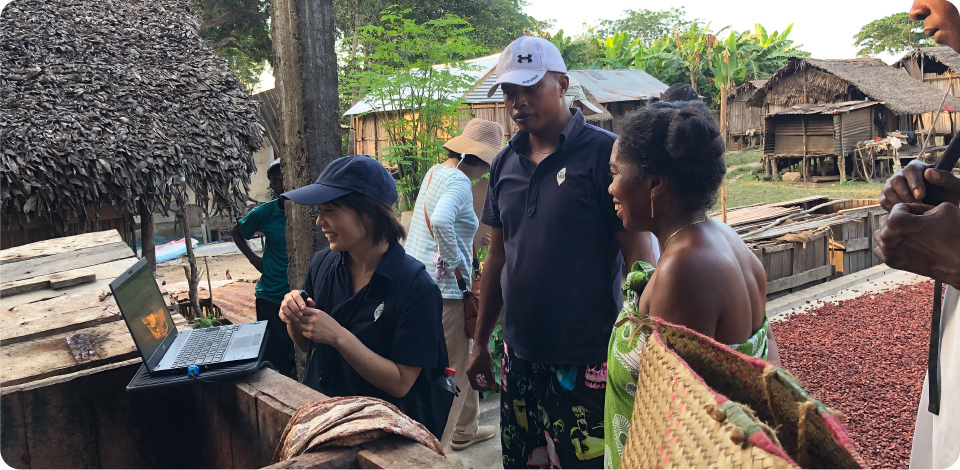
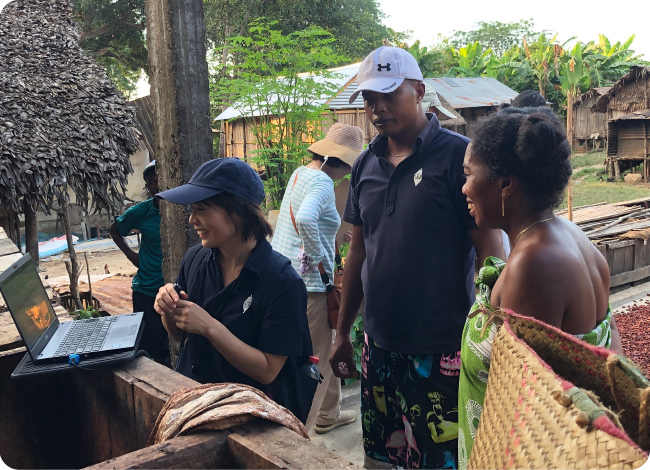
Return to origin in Madagascar. We are exploring the potential of white cocoa.
Currently, what I am working on as a MCS project is to develop production areas in Madagascar. Until now, Meiji has not consistently purchased cocoa from Madagascar. However, there is also a possibility that cocoa's rare variety, the white cocoa known as Cryolo , is being cultivated, and we are working to develop it as a new production area.
In Meiji, Mexico, which is said to be the country of origin of Criollos, also produces white cocoa. In this situation, the reason why Madagascar was newly considered as a producing region was that White cocoa moved across the sea from Mexico and through Indonesia and India to reach Madagascar. This is because it is said that Madagascar is the end point of the white cocoa production area.
White cocoa, which is said to be the original breed of cocoa, is an important element for those of us who have been involved in cocoa for many years. Because it is a weak and delicate variety, we intend to protect it even on the site of Madagascar, which has ultimately been reached.
In addition, Madagascar's cocoa has a fruit-like fragrance and rich sour taste, and is very distinctive. In order to maximize its attractiveness, we are in the midst of steady local relations, such as the initial activities of MCS, providing appropriate agricultural equipment and guiding fermentation methods.
Because of COVID-19, I have only been to the site once, but I am currently in frequent contact online. It is quite difficult to communicate remotely, but we have received a sample of cocoa that was produced under our guidance, and we analyze it at the laboratory and provide feedback. They also taste the chocolate actually made from the cocoa.
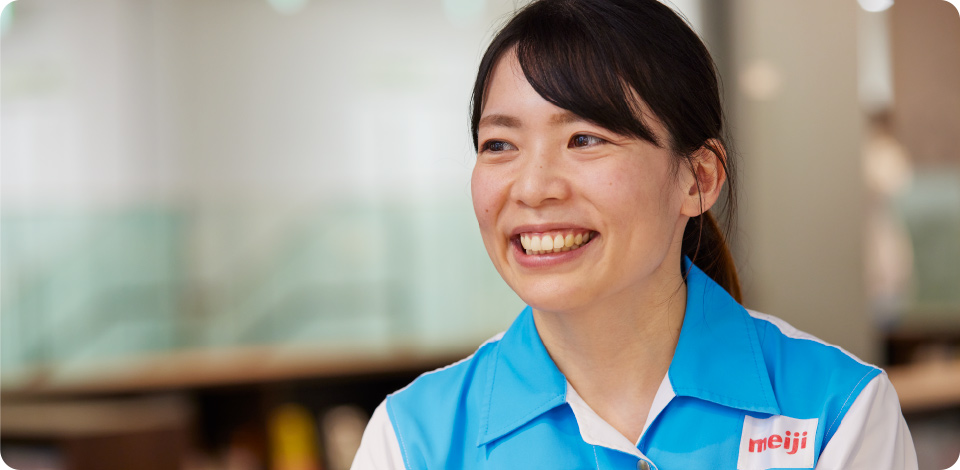
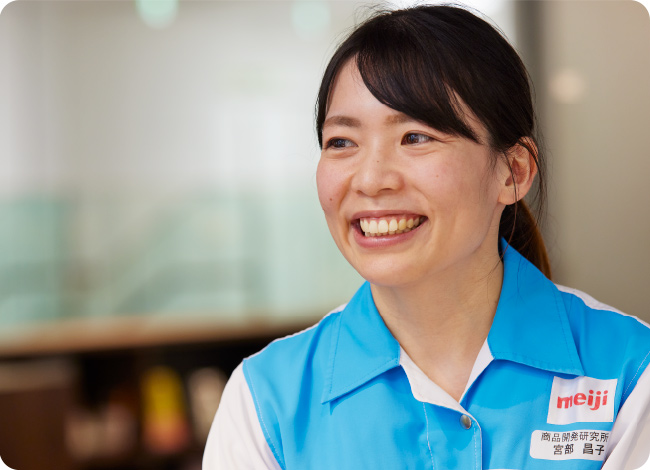
Support the local area temporarily and the end is no good. To connect the baton from senior to the future.
Nine years after I joined Meiji, I sometimes felt that the only people we could support at MCS were some of the people involved in making cocoa beans. The person who changed that mindset was a senior person who started MCS before I joined the company and worked hard over a long period of time to provide local support.
I was taught by those seniors that "it's not OK to temporarily support and end" and that "you shouldn't unilaterally impose your values."
In order to produce high-quality cocoa beans, it is important that the three parties -- cocoa bean farmers, Meiji, and customers -- understand each other and continue to support the future, such as teaching the proper fermentation method and providing necessary farming equipment.
We then use this cocoa to deliver good products to our customers, thereby increasing the value of our cocoa and improving the livelihoods of cocoa farmers in the areas of production. We are committed to MCS while constantly being conscious of supporting each of the three parties to turn positive.
I believe that as the baton is received from passionate seniors and we continue our MCS activities, transactions will be conducted at appropriate prices in any production area, and cocoa industry as a whole will change. Although it is a steady activity, I hope it will create a good cycle that improves the lives of farmers and gradually expand it throughout the world.
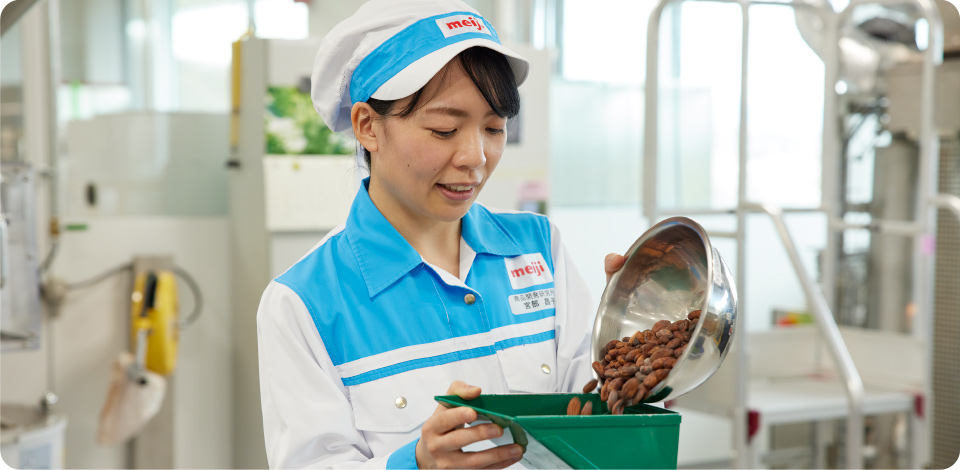
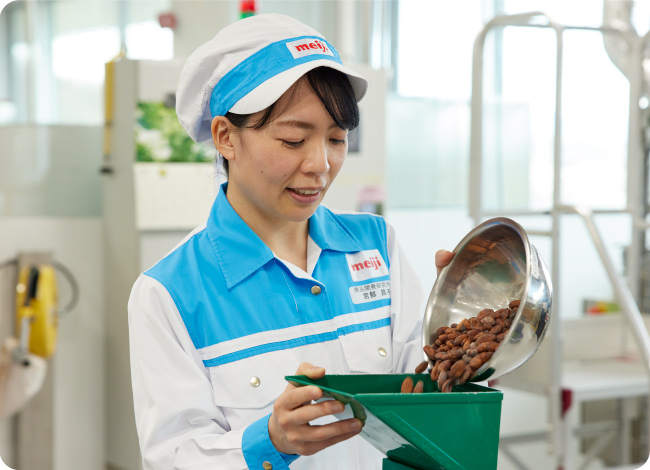

- A person who improves the quality of cocoa beans.
- Masako Miyabe
She joined the company in 2013 and was assigned to the laboratory's cocoa research department. Develop cocoa as a raw material for chocolate and become involved in meiji cocoa support. Since 2019, she has been engaged in developing cocoa in Madagascar. Currently, the company aims to develop and expand white cocoa, a rare variety.







